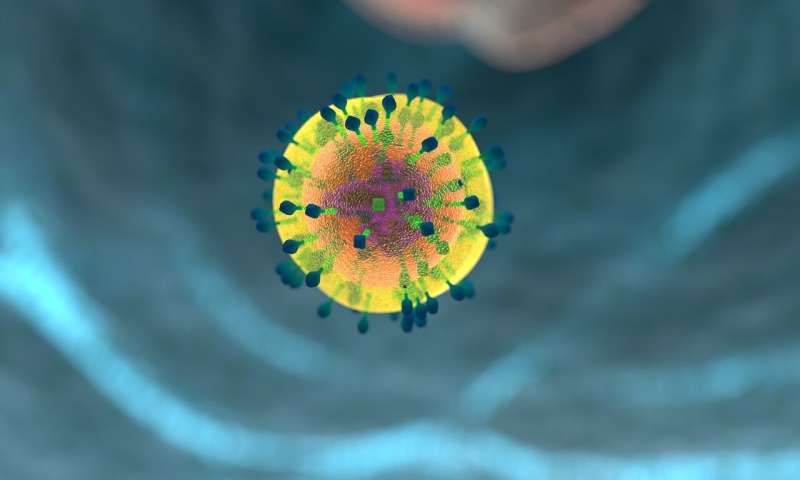Key type of immune cell 'self-renews' in humans, new study finds

A team of scientists has shown that a key type of immune cell "self-renews" in humans.
It is an unexpected discovery, as it was previously thought this specific type of "senescent" killer immune cell had reached "end-stage" and would die following one more stint at helping people fight off—or live with—certain infections.
It suggests these cells could play a much bigger part than previously thought in lifetime immune memory, and the finding could also have important implications for vaccine design.
The research, a collaboration between Cardiff University, St George's, University of London, Imperial College London, and scientists in the U.S., is published today in the journal Cell Reports.
"Since the COVID-19 pandemic, T-cells—the immune cells that have a crucial role in killing infected cells and protecting us against infection—have been in the spotlight, and it is crucial we continue to learn more about the role they play in long-term immunity, for good or for bad," said lead author Dr. Kristin Ladell, from Cardiff University's School of Medicine.
"Here, we have clearly shown that a type of T-cell we thought was senescent—that is, aged and deteriorating in function—is in fact self-renewing in humans."
In this study, the researchers used complex methods, including cell tracking in humans, advanced imaging technology, and mathematical modeling to determine that CD57+ memory T-cells proliferate and self-renew in vivo.
They tracked the cells using heavy water containing the stable isotope deuterium in young and elderly adult volunteers, with or without HIV-1 infection. As deuterium is incorporated into cells when they divide into daughter cells, the fraction of deuterium-positive cells correlates with the self-renewal of the cells of interest.
In addition to this approach, the researchers also measured cellular aging using a technology developed by Professor Duncan Baird at Cardiff University.
The experimental results were complemented by mathematical modeling performed by Professor Becca Asquith's team at Imperial College London, providing strong evidence that most CD57+ memory T cells self-renew and thereby contribute to long-term immunological memory.
"It was already known that CD57+ memory T-cells become more prevalent with age, usually in response to persistent immune stimulation, for example, in people with certain chronic infections, like HIV-1, or certain types of herpesviruses, like cytomegalovirus," said Professor Derek Macallan at St George's, University of London.
"What we wanted to find out was whether these cells were actually multiplying or just accumulating, because they were not dying.
"Our research suggests they are self-renewing, and as such, it would seem they have an important role in keeping chronic infections at bay."
Dr. Ladell added: "This finding is important for the understanding of how immunological memory is maintained during the life course and for vaccine design and immunotherapy.
"For example, with COVID-19, the key aim is to create a vaccine that induces a protective, long-lasting immune response that includes T-cells, but to do this, we need to learn more about how these key immune cells work. This could help determine whether a new vaccine might prove effective or not."
More information: Raya Ahmed et al. CD57+ Memory T Cells Proliferate In Vivo, Cell Reports (2020). DOI: 10.1016/j.celrep.2020.108501




















